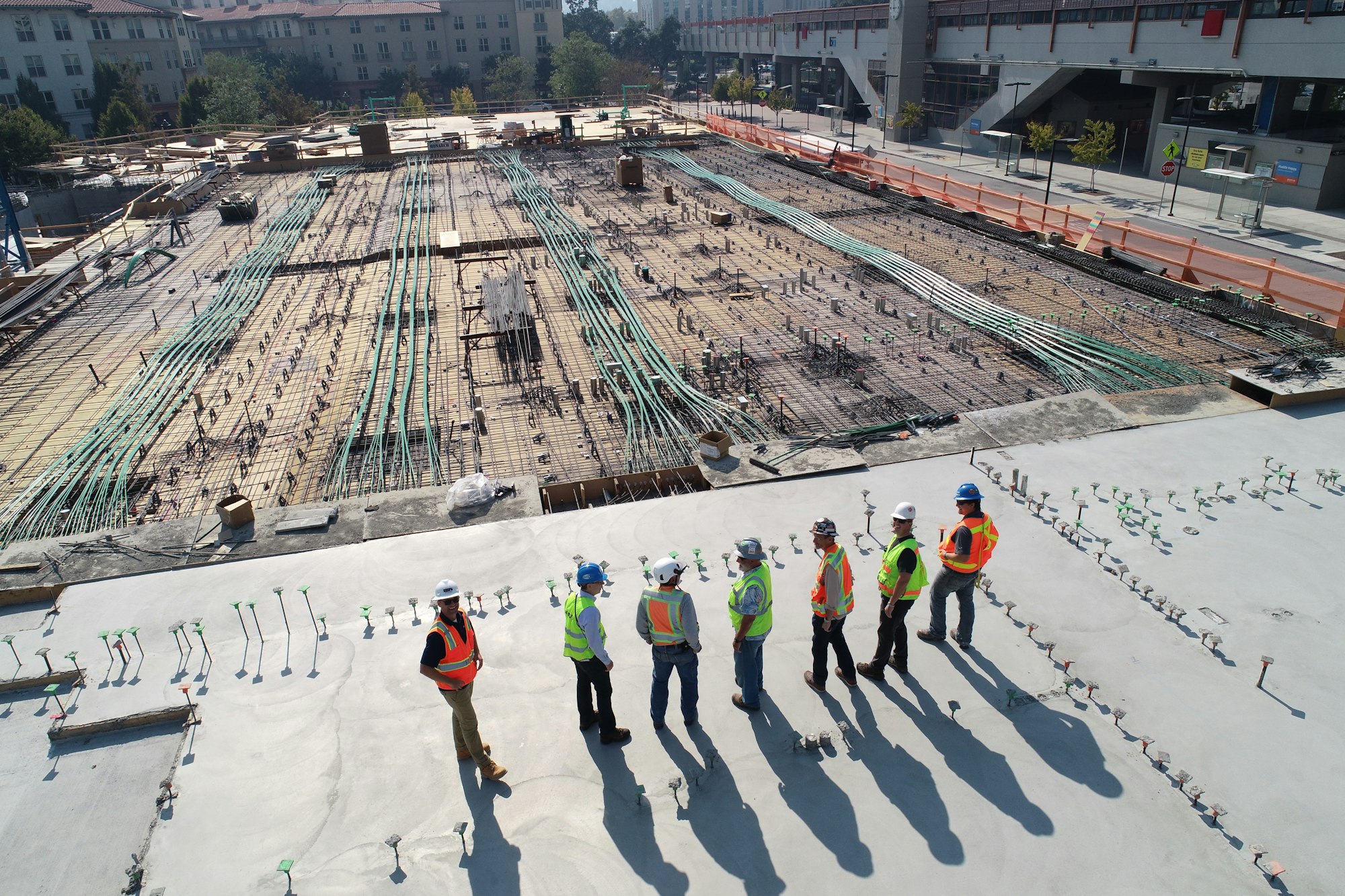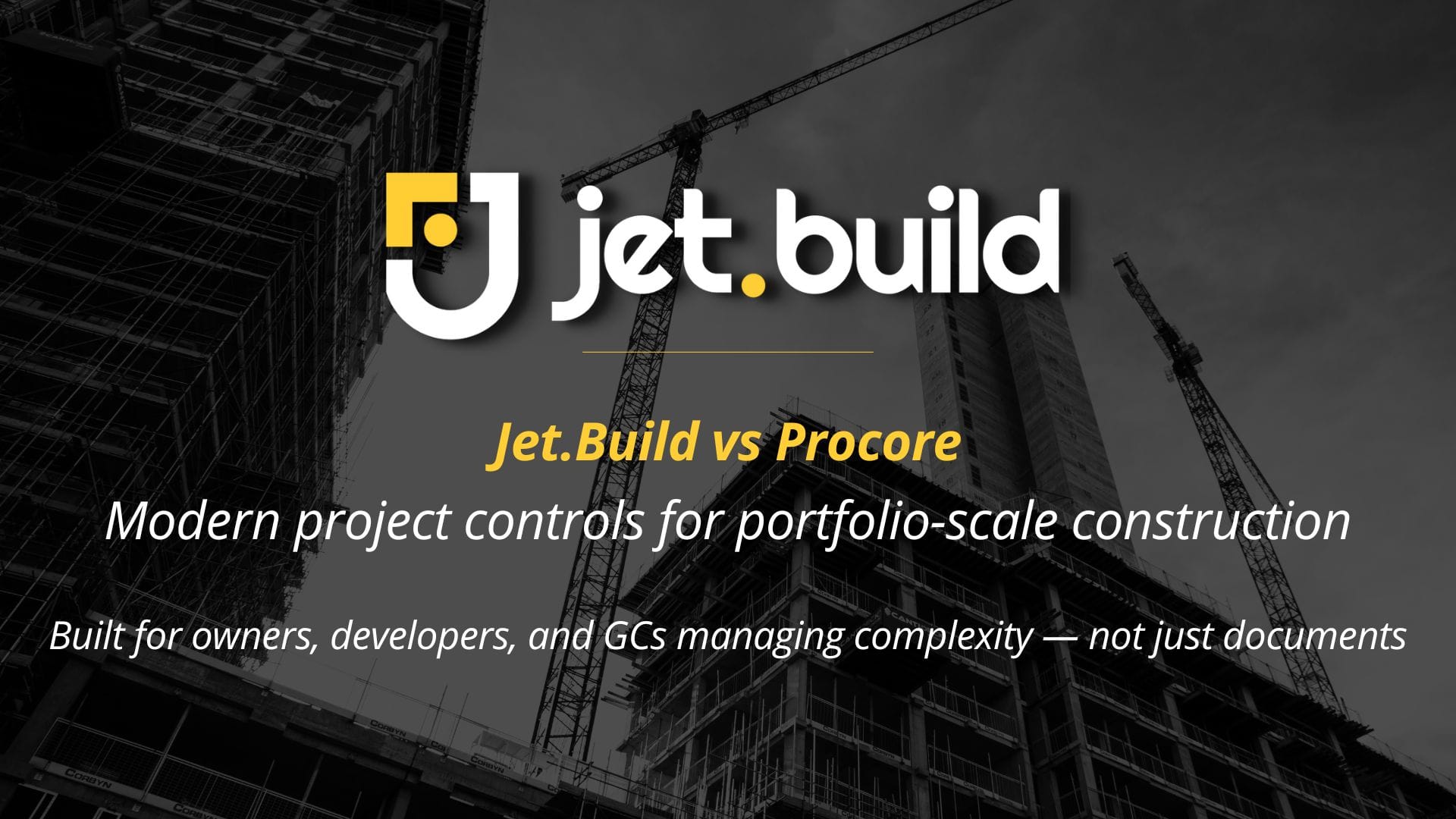Are you wasting a ton of time trying to organize and keep track of the various stages of a construction project?
If you are juggling one, five, or ten projects for your firm or general contracting business, the organizational aspect is a full-time job itself. It’s also likely why you have more than five tabs open on your computer at all times, right?
So, what’s the best way to keep track of all your construction jobs?
Construction management software is a no-fail way of setting each project up with a solid foundation that will carry you from the initial bid through the final invoice.
If you are still giving out handwritten quotes, calling your sub-contractors for reports and updates, and sending out invoices that get no response, you are taking a gamble with your hard-earned reputation as a leader in your industry.
The Importance Of Construction Management
We understand the everyday demands of a busy construction business. Chasing down bids, and communicating with clients, workers, and vendors takes up a serious amount of time that could be better spent elsewhere.
In a profession where time is money and every second counts, bouncing from app to app and screen to screen is only hurting your bottom line.
Take a look at why construction project organization is imperative for your business:
- Professionalism: Not responding to RFI’s or forgetting invoices is a great way to lose credibility with your clients and outside team.
- Risk Assessment: Most projects will have at least one or two hiccups along the way. It is important to have contingency plans in place and be able to implement them quickly. This will keep everything running smoothly.
- Communication: As the project manager or owner, you are the voice of your team. With all the details at your disposal, you are better equipped to give your team direction, encouragement, problem-solving advice, and responsibilities.
- Staying On Budget: A common problem for construction management is staying on budget. When you have a solid plan, you easily avoid overspending and scope creep.
- Satisfied Customers: Providing quality work combines the finished project and the relationship you built with your client. Open communication is the fastest way to keep your customers satisfied.
If you can relate to these issues, construction management software is probably looking like a good idea, right?
Before you answer that, though, take a look at how the leading experts in your field keep their businesses and projects running smoothly…
Construction Management Tips From The Experts
1. Manage Your Bids
Solid bids are at the forefront of any project, and like any great work of art, the beauty is in the details. The more specific the scope of work is, the more accurate your bidders can be.
You also want to ensure that you are collaborating with the right sub-contractors. Being able to compare bids all in one place allows you to make the best decision.
Yet, if you’re wasting time and energy on spreadsheets, emails, and other out-of-date technology, you’re eating into your bottom line.
Construction management software like ours is designed to keep track of every aspect of your bid. In fact, the more detailed you are, the more tailored our software becomes.
2. Stay On Budget
Staying on budget is one of the most crucial parts of a well-planned construction project. That being said, it’s easy to let the numbers slip when you don’t have a solid plan in place.
When creating a budget for any project, you need to be as specific and accurate as possible.
To stay on top of the game, it’s essential to have your financial plan easily accessible in several layouts. For example, a professional budget using simple-to-read pie charts and graphs is great for sending out to clients.
A cost breakdown of each line item is also important for keeping your finger on each aspect of the job. You should be able to easily check hard and soft costs along with comparative bids.
With a solid budget, your project will stay in the black indefinitely.
Pro Tip: A lot of contractor bids and budgets have similar costs for labor, materials, permits, etc. Save time and costs by transferring line items from one job to another.
3. Stay On Top Of Schedules and Project Calendars
It’s not just the budget you have to stay on top of but your scheduling, as well. It’s one of the biggest reasons why building projects go over budget, so ensuring everyone is on the right track will only help your end game.
A well-put-together schedule gives your team direction. It should also provide progress reports and allow you to see how different schedules line up together.
Similarly, a project calendar shows the people on your team the progress that has been made on a project. Not everyone will need to see the entire project overview, though. Check out how you can share specific aspects of your construction plan here.
4. Utilize A Task Management System
Even with the most well-planned schedule, without a solid task management system, nothing will ever get done, right?
A project isn’t about sending in different crews all at once. You can’t paint walls until they’re built, and you can’t build those walls without the proper permits.
Using construction software that has a solid task management feature is key to your communication and collaboration.
Of course, we are sure you already knew that communication is key, but if you’re calling everyone on your team to give instructions, your overhead costs are going to feel it. Being able to share tasks from one app that is easy for everyone to access will lighten your load considerably.
5. Don’t Under Estimate Daily Reports
Overseeing a project is not always easy. If you are keeping track of several construction sites at once, it can be downright stressful.
Unfortunately, technology has not been perfected enough to let us be in two places at the same time, but with the right construction software, you can come close!
Tracking the progress of each job daily will allow you to better manage your schedule, tasks, and most importantly, budget. Depending on the individual job, you can add any number of details to the report, such as:
- Manpower records
- Equipment usage
- Contractor notes
- Budget discrepancies
- Pictures
- Videos
- Weather reports
- Deliveries
- Invoices
- RFI’s
- Milestones and progress reports
When you use the right software, reports are easy to send to clients and team members that are connected to the project.
6. Client Communication
Staying on budget and schedule is bound to make most clients happy, but open communication with them is what turns a “happy client” into a “repeat client” that will look to your team for all their future construction needs.
With everything you have to oversee, however, requests for information can often fall by the wayside. This is why it’s important to not only have all of your RFIs in one place but to have the answers at your fingertips, as well.
This is also true for non-conformance reports. Not every job will go smoothly. Sending out NCRs as soon as possible lets your client know you are on top of things, and it eliminates the need for inquiries that could be lost in day-to-day activities.
Pro Tip: RFI’s and NCRs are not just important for the client, but for you, as well. Your management system should also be able to quickly send requests for information from all parties attached to your project.
7. Act Quickly On All Invoices
Most contractors know that the constant ebb and flow of invoices is something that needs to be monitored closely. Even with a realistic budget and a well-planned schedule, the line between being in the red or being in the black can be scary.
Sending out invoices to your clients should be done as early as possible along with a follow-up procedure in place in case of late payments. Provide short but reasonable due dates and communicate right away with delinquent accounts. As they say, a closed mouth doesn’t get fed!
You also want to keep track of your incoming invoices and pay them as quickly as possible. Meeting billing due dates create trust between you and your subs and vendors.
Likewise, keeping all of your invoices in one place where they can be approved, reviewed, or denied is essential. Applying them to your goals and project budget will fine-tune your daily reports, so you can eliminate any scope creep or other issues right away.
Finding The Right Construction Management Software
Staying on top of your building projects is more than a full-time job if you don’t have the proper construction software.
If you want to stay in front of your competitors, establishing a professional presence with detailed bids, organized budgets, and clear daily reports will put the finishing touch on your already superior workmanship.
Be that as it may, choosing the right contractor management software is not always easy. Luckily, you can try construction management software for free right here.
Jet.Build not only helps you keep each project organized, but it reduces your overhead costs by consolidating everything in one tailored fit piece of software. Using cutting-edge technology, you will be able to plan each project down to the smallest detail.
Don’t take our word for it, though. See how far you can take your construction business with our 30-day free trial.
We have designed a collaborative and transparent management system that fits the needs of large corporations and project managers alike. Check our free demo, as well, for more information today!









